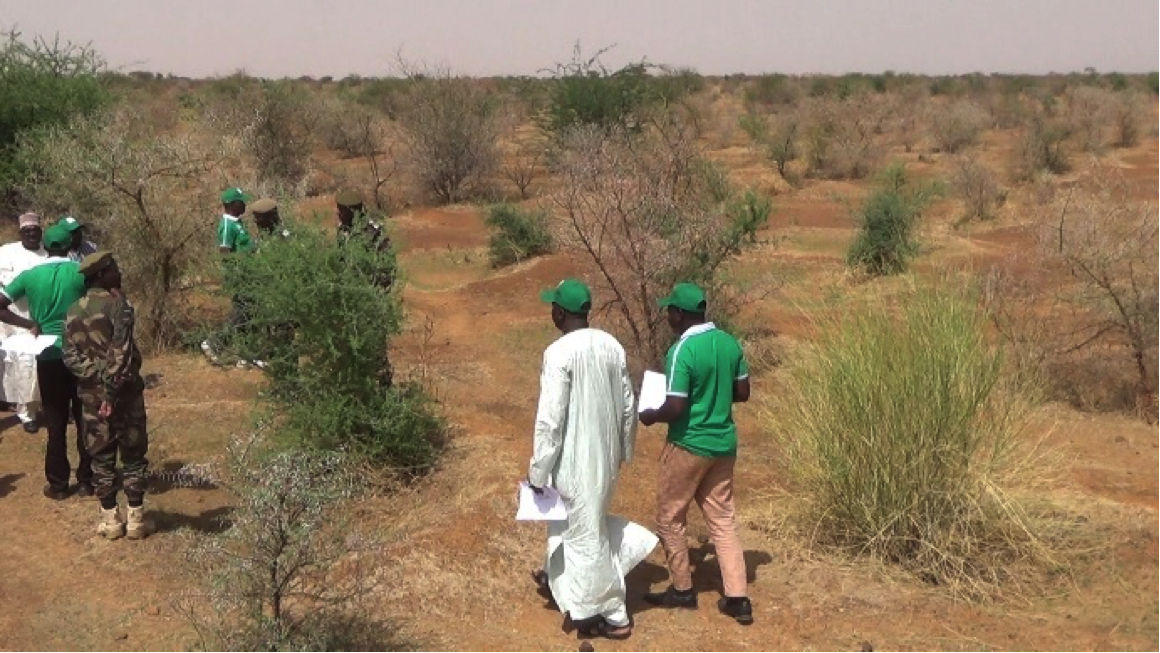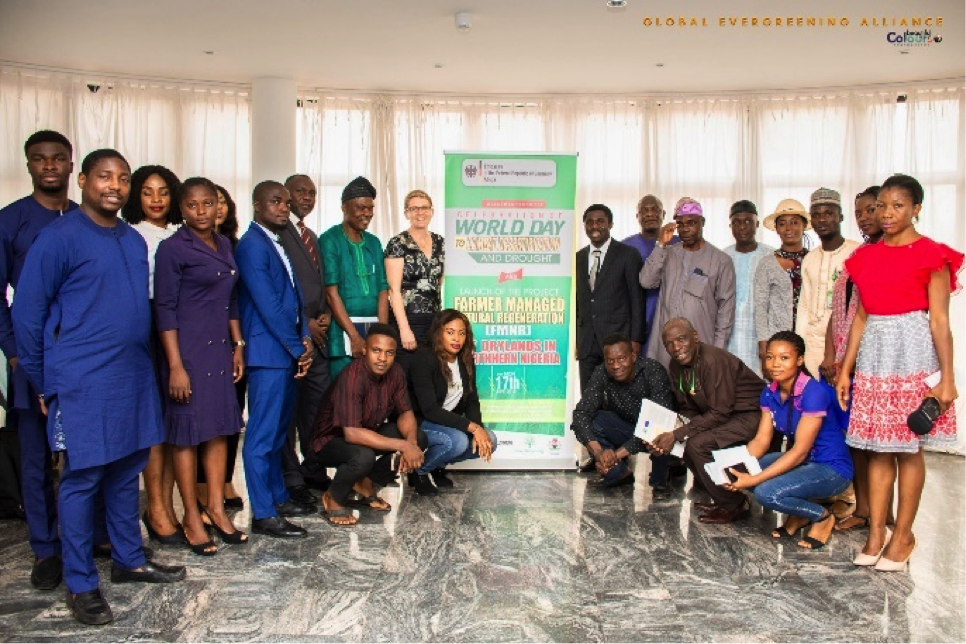By Alan Channer
Kelechi Eleanya is passionate about trees and the environment. As President of the ‘Forestry Students Association’ (aka the ‘Tree Club’) at the University of Ibadan in the 1990s, he was in the vanguard of promoting the value of trees in the environment among his peers.
‘Back then,’ Eleanya recalls, ‘forestry was not a respected subject. Spending time studying forest and trees was seen as going back to the bush. That view is changing now. More people are becoming more aware of the value of trees, in the light of the solutions they bring.’
Nigeria, with a population of over 200 million people comprising 250 ethnic groups, is often referred to as the giant of Africa. It will be the world’s third most populous nation by the mid-point of the century.
Eleanya has criss-crossed the country – from the mangroves of the Niger Delta and the multi-storey rainforests of Ondo State, to the Sahelian savannah on the border with Niger. An alumnus of the Yale School of Forestry and Environmental Studies, he was a Cameron Speth Fellow of the World Resources Institute and is a Senior Fellow of the Global EverGreening Alliance. Eleanya is now spearheading the activities of the EverGreening Network in Nigeria – an extension of the Global Alliance.
With a grant from the German Embassy in Abuja, his first move was to take a delegation of 27 Nigerians – farmers, development workers, faith leaders, youths and local government officers – across the border to Niger, to the villages of Dan Saga and the birth-place of ‘farmer managed natural regeneration’ (FMNR).
The Nigerians received a guided tour of FMNR sites in Niger, starting with an historical overview by Dan Saga farmer Ali Neino, a laureate of the 2019 ‘Excellence in Land Restoration Award’.
‘We learnt a lot,’ Eleanya recounts. ‘First of all, we were struck by the attitude of the farmers. In that part of Niger, farmers say to you, “Trees have to be on the farm”, and you can’t tell them otherwise.
‘Then there is the community aspect. The success of FMNR in Niger is the success of the community. In Dan Saga, they have set up village committees with byelaws and guidelines for the management of trees. The byelaws are enforced by the village committees. The system is robust.
‘Then there is government policy, which respects the environment. You cut a tree in Niger and you can go to prison.
‘The situation in Nigeria is very different. People just cut trees. Even Nigeriens cross over the border to cut our trees. We need to make Nigerian farmers aware of FMNR, we need to set up committees in our villages and we also need political will from government.
‘What we have seen in Nigeria is the degradation of values with regard to the environment. We still struggle to generate the political will. When you add to that the pressures of acute poverty – whereby someone will cut a tree for cash today, rather than think what it can provide tomorrow – then you see why we are losing trees.’
After the visit to Niger, the project team held a follow-up roundtable on land restoration in the city of Kano. An integrated strategy was adopted by the multi-stakeholder group to scale-up EverGreening across northern Nigeria, using different entry-points and different approaches according to each context.

Members of the Nigerian EverGreening Network delegation visit an FMNR site in Niger in June 2019.
In north-eastern Yobe State, the team has started by planting trees in village settlements. ‘Tree guards made of basket material are vital to protect saplings from wandering ruminants in these settlements,’ Eleanya notes.
In Bauchi State, the team is developing a community woodlot, ‘to relieve pressure from cutting firewood from trees in fields where we want to implement FMNR’.
Eleanya’s next move is to build on one of Nigeria’s most distinctive assets: the dynamism and the networks of its traditional and religious institutions.
He invited Imam Muhammad Ashafa and Pastor James Wuye, nominees for the Nobel Peace Prize and winners of the UN Intercultural Innovation Award for resolving conflicts between pastoralists and farmers, to attend the first Drylands Restoration Conference in Katsina State in 2018, where a joint declaration on EverGreening was adopted.
‘Their presence was a turning point at the meeting,’ Eleanya recalls. ‘When Imam Ashafa spoke about the duty of Muslims to take care of their environment, people became filled with remorse.’
Pastor Wuye noted that, ‘if we don’t reverse the loss of trees in this area over the next 10 years, we will have catastrophe. Evergreening is the biggest solution to security. If we give back to the land, the land will give back to us. If the religious and traditional leaders of Nigeria take these issues on board and advocate for tree regeneration, it can spread like wildfire’.
With Eleayna, Ashafa, Wuye and other prominent Nigerians from different walks of life now advocating for the tangible benefits of evergreening, the fortunes of many rural Nigerians may be about to change for the better.

